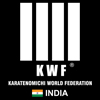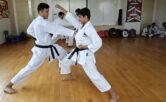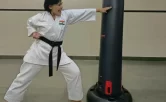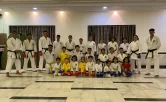Martial Arts and Mental Health
Awareness about mental health has begun picking up in recent years. Anxiety, depression and stress-related issues are the most commonly heard of. It is both shocking and saddening that most of our youth suffers from either one or all of them. Emotional distress is the unfortunate part and parcel of life, and an unwelcomed guest in the lives of many regardless of age and lifestyle.
Pent-up emotions, a head full of rage, uncertainty bundling up into frustration, distortion of reality, rapidly decreasing attention span and many more troubled states of being come together to start a chain reaction resulting in the loss of peace and hampering one’s emotional well-being. Now, more than ever, is the need for more ways in which one may disperse these for the sake of their sanity, quite literally.
The aim is not to cause anguish but know for ourselves that help is always around; to believe that there is an outlet for our feelings – a safe space, nurturing environment and non-judgement zone where individuals are encouraged to be themselves, speak their truth and calm their minds by allowing their physical forms to move and feel free too.
Champions for Life is built on the promise of providing that shelter along with the Shihan’s mentorship which is emancipatory. Martial Arts like karate are renowned not only for building strength and making one vigilant but rather it is known to benefit the individual in more ways than that of the social world. Karate is known to equip the individual with greater concentration, ability to stay calm, mindfulness and stronger will.
Shihan Sachin Chavan believes in the practice of the traditional form of karate intermingled with its ‘sport’ aspects. There is greater emphasis on the contact made and therefore, its impact. Training is inherently strength-based but it is not so without understanding the appropriate application of the strength gained and one’s capacity for composure – such judgement is the outcome of regular training and meditation.
The rigorousness of the training permits the individual to knock themself out! Throw a mighty punch, put it all into the kick, move in really slow and blast it all out with a kiai. To perform karate is therefore to be liberated.
An hour in dojo with the Shihan is a sanctuary for the karatekas to come in from various walks of life with their own set of troubles and reactions to situations – some bottled up, others are bouncing off walls. All of it fades away when there is a sheen of sweat on the forehead, the opponent in kumite is a friend who could also be distressed and the Shihan directs both to go in and fight – not to injure the other but master one’s own emotions in an optimal way to score points, take care of their own safety and others’ while losing all fears and emerging as a victor despite falling short of a point. The victory is in being strong enough to hold one’s fort down; there is no greater power than channeling one’s feelings for the upliftment of oneself and others.



